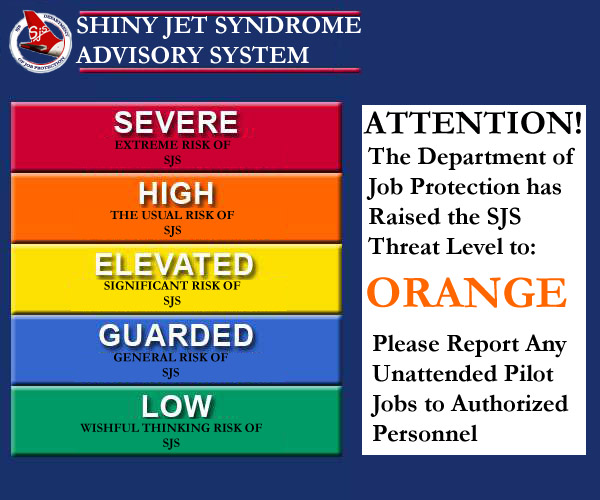Big Pistons Forever wrote:The only reason I can see for having an employment contract is for the employer to extract a penalty from the pilot for leaving early. Maybe I am being paranoid but I read this as a way to avoid having to be a decent employer because if you are 1 month in to the contract and your are getting treated like shit, you will have fewer options to leave.
I mean no offense, but I do feel that in this scenario you are being paranoid. I don't see this as a way for the employer to avoid having to be a decent one, because, lets face it, contract or no, if the boss is a tyrant or working conditions are terrible, the employee is going to walk. Assuming it is just a contract and not a bond, there is virtually no penalty for the employer to potentially extract. If they really wanted to waste their time, money and energy they could attempt to take the issue to court for breach of contract, but to what end? It's not worth it. Any potential monetary sum that they may get (which they probably wouldn't be awarded anyway) would be quite small and not be worth the time and effort spent.
Instead I see this as a way for the employer to have a little peace of mind for 12 months knowing that they have an agreement with the employee that if they both live up to their ends of the bargain they will have a mutually beneficial working relationship. Lets face it, most low time pilots flying light singles have shorter memories if they've been treated decently and have no problem leaving a good employer in the lurch when that $20k/yr right seat turbine job comes along so they can "live the dream." The instructing and even the Navajo are both stepping stones to most of them, that they would gladly leapfrog over if given the chance. Sure, shitty employers are a problem in the industry, but short-sighted, low-time pilots with no loyalty and who feel they are owed something without having to work for it are, in my opinion, just as detrimental to our industry.
Big Pistons Forever wrote:Even if it works out, you only have a job for one year so you had better suck up to the boss in month 11 so you get your contract renewed. So slats please explain to me how this is in any way advantageous for the employee ? From my point if view I see this as a another dimunition of pilot terms and conditions of employement. I do not think this is a practice that should be encouraged.
I think it is advantageous for both, provided they both live up to their respective ends of the bargain. There is no need to suck up to the boss, only the need to do the job well. If a pilot does that, chances are very good the boss will want to keep them, as opposed to going through the process of hiring and training an unproven pilot. I think the contract is a way of laying it out in writing and ensuring that both parties are on the same page ahead of time and know what to expect from the other with no surprises along the way.
linecrew wrote:If you read it like I did from the perspective of an up-and-coming commercial pilot, it is a minimum 3 year commitment if you want to get on the Navajo (the aircraft that matters most). You can get an instructing job anywhere so that is a moot point. If you want the Navajo time the post implies that you have to give them 3 years to EARN it. Then you have to commit to an entire year after the three years is up. Do some research into what has become the 'standard' and you'll see why this is so funny.
As with most issues, you will have a fuller and better understanding of it if you look at it from both perspectives as opposed to just the one you are most familiar with. Also, careful reading of what is laid out helps; the ad specifically says that the Navajo flying occurs in the third year, not after the third year as you imply. And what is so wrong with "earning" something? Do you feel some sense of entitlement?
I'm not sure I follow what you mean with regards to me researching the "standard" in the industry. Could you elaborate?






